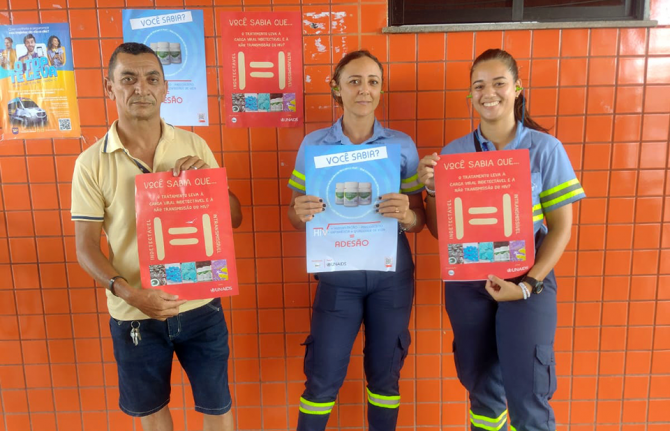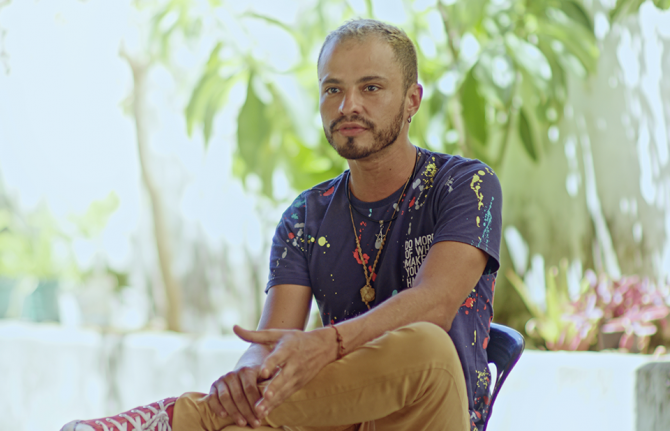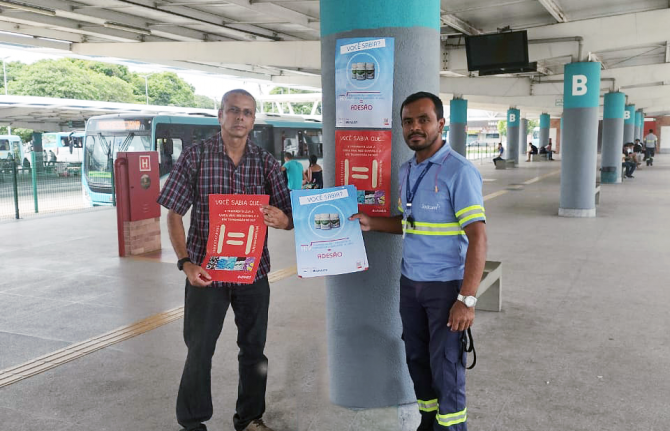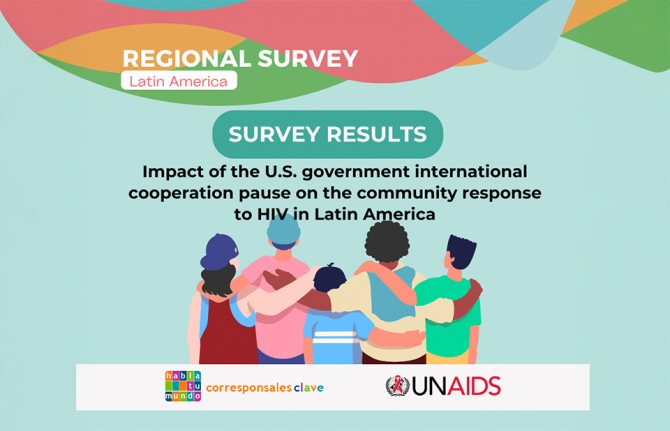



Feature Story
In Northeast Brazil, civil society and local government collaborate to increase HIV treatment adherence
03 April 2023
03 April 2023 03 April 2023In 1988, a group of activists came together in Fortaleza, the fifth largest city in Brazil and capital of Northeastern state of Ceará, to create the local chapter of the National Network of People Living with HIV and AIDS (RNP+CE). The aim was to ensure that people living with HIV could be guaranteed the right to care, treatment adherence, and legal assistance.
Currently, the NGO (Non-Government Organizations) also offers educational workshops, support for the combination prevention of sexually transmitted infections (STIs), and other activities for more than 1,000 registered people. Among them is Carlos Salmão, an HIV activist living in Fortaleza, who felt individually and collectively welcomed by the organization. "This support was very important to me and is fundamental for people living with HIV here in Ceará because it is a reference of the response to the AIDS epidemic. That is why I feel pleasure in contributing", he explains.
The RNP+CE was one of five Brazilian NGOs that received resources from the Fast-track Cities grants initiative, launched by UNAIDS in 2022. With the award, the organization developed actions around two objectives: increasing linkage and adherence of vulnerable key-populations to HIV prevention, diagnosis, and treatment by disseminating and sharing information with health professionals as well as the general public; and improving the knowledge of the Undetectable Equals Untransmittable (U = U) strategy in the city of Fortaleza by carrying out communication campaigns.
Project actions and participation of municipal government
The project involved 10 local HIV-positive activists in the development and implementation of the communication campaigns. They also were involved in preparing a seminar that brought together 120 people from civil society to dialogue about and to present to municipal government representatives proposals to improve the care for people living with HIV, based on the perspectives and actual needs of the users of public health services in Fortaleza. An additional theme of discussion was the challenges and the importance of guaranteeing a satisfactory level of adherence to HIV treatment to avoid abandonment.
Still as part of the project, a booklet on HIV, self-esteem and health was produced and distributed, providing practical information for people who receive a positive diagnosis for HIV. Additionally, in coordination with the municipal government, RNP + CE printed and distributed more than 3,000 copies of posters on HIV treatment adherence and on U = U. This material was displayed in places with high concentrations of people, such as bus terminals, reaching about 1.1 million people daily.
Participation of local government officials was a strategic element to the project’s success, as they are in direct contact with reality and the existing challenges. "We are still far from reaching an ideal level where there is less need to reinforce these [HIV] actions, but we are advancing in this direction through constant and well-structured work", says Carlos Paiva, coordinator of IST/AIDS at the Municipal Health Secretariat of Fortaleza.
Ariadne Ribeiro, UNAIDS Officer for Equality and Rights for All People, agrees and adds: "It is rewarding to see how the dialogue between communities, civil society, and the municipal government is moving towards a common goal, which is the improvement of public policies in the city of Fortaleza for people living with HIV and to end AIDS as a threat to public health."



